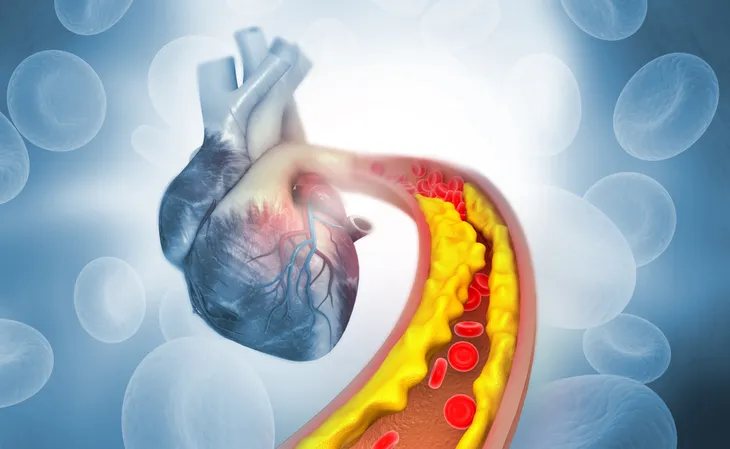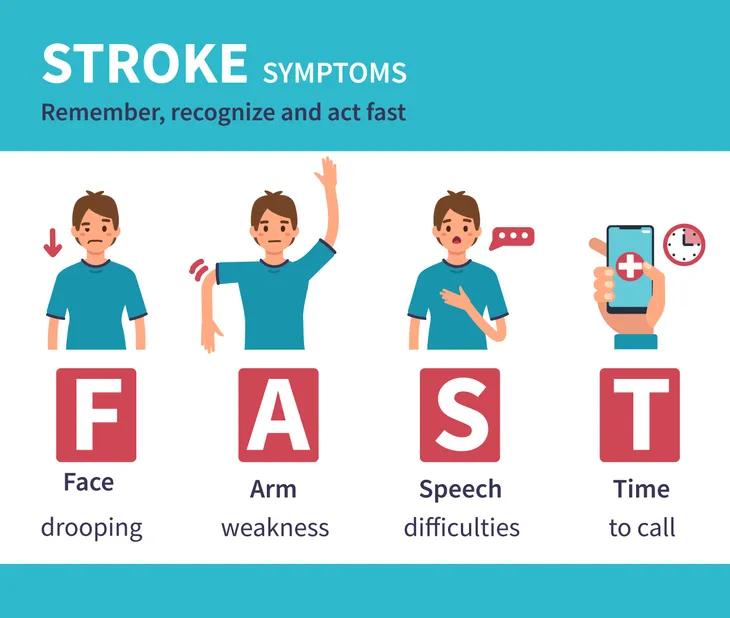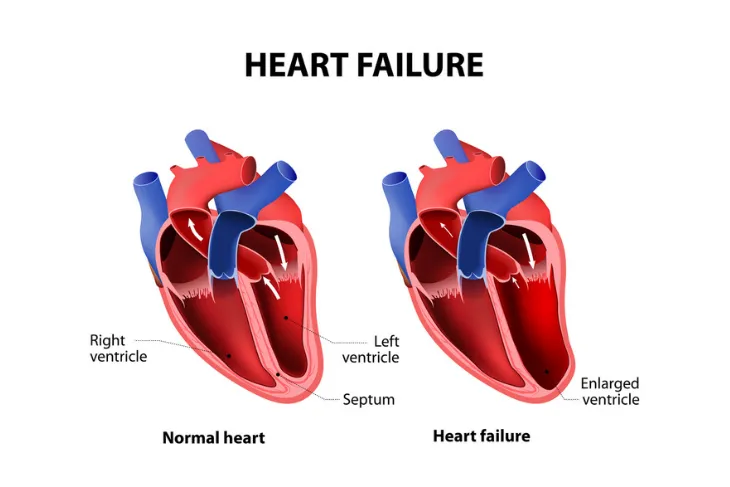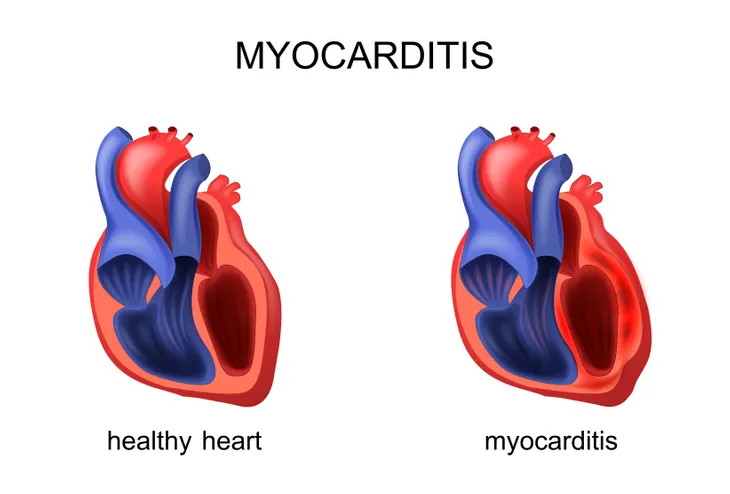- Cardiovascular disease is a condition or group of conditions that affect the structure or function of the heart or blood vessels in the body.
- There are several types of cardiovascular disease including heart disease, heart attack, stroke, and heart failure.
- The goal of treatment is to minimize symptoms, prevent complications, and stop the progression of the disease.
- You can also take significant steps to change the outcome of your diagnosis by modifying your lifestyle.
Cardiovascular disease is a life-threatening illness that affects people in all areas of the world, men and women, and all backgrounds. It’s a disease that many of us have heard about but likely know little about it. We are here to change that and provide you with everything you need to know about cardiovascular disease.
We will start by talking about the basics of cardiovascular disease and move into the symptoms, treatments, and preventative measures you can take. Like all chronic illnesses, cardiovascular disease should not be taken lightly. Learning more about this condition can help arm you with life-changing knowledge should you or a loved one become diagnosed with the disease.
What Is Cardiovascular Disease?
The definition of cardiovascular disease is a condition or group of conditions that affect the structure or function of the heart or blood vessels in the body. Your cardiovascular system is made up of your heart, arteries, veins, and capillaries. When all these pieces work together they bring the blood, which supplies oxygen and nutrients to your tissues, to where it needs to go.
When the cardiovascular system does not work properly it can lead to devastating consequences. Your body needs each piece of the puzzle to work as it was designed to be effective. If the body is unable to bring blood to and from the organs and tissues then these areas will suffer and not work properly. This can lead to organs like your kidneys not filtering blood properly.
Cardiovascular Disease Facts and Statistics
The statistics that surround cardiovascular disease are astounding. According to the Centers for Disease Control and Prevention (CDC), “Heart disease is the leading cause of death for men, women, and people of most racial and ethnic groups in the United States.” The source also states that one person passes away every 36-seconds from heart disease.
Coronary artery disease and heart attacks are two of the most common types of cardiovascular disease. The CDC tells us that, “coronary heart disease is the most common type of heart disease, killing 360,900 people in 2019” and “every year, about 805,000 people in the United States have a heart attack.”
Types of Cardiovascular Disease
There are several types of cardiovascular disease, learning a little bit about each type can help you understand the condition and your risks.
Heart Disease
Heart disease encompasses several medical problems. The American Heart Association reports that many of these problems are related to atherosclerosis. This is a condition where plaque builds up on the inside walls of arteries. “This buildup narrows the arteries, making it harder for blood to flow through. If a blood clot forms, it can block the blood flow. This can cause a heart attack or stroke,” says the source.
Heart Attack
The heart has several blood vessels that bring blood to the actual heart muscle. When one of these vessels is blocked and blood flow is cut off, the muscle area that is served by that vessel will start to die. Unfortunately, heart attacks are not uncommon. According to the CDC, someone in the United States has a heart attack every 40-seconds.
Thankfully, the source continues to say that most people survive their first heart attack and can return to living their normal lives. It notes that you will need to make lifestyle changes to prevent another heart attack and follow your doctor’s recommendations.
Stroke
Another type of cardiovascular disease is stroke. There are two types of stroke, an ischemic stroke, and a hemorrhagic stroke. An ischemic stroke is more common and happens when a blood vessel in the brain becomes blocked. This typically happens from a blood clot. This results in cell expiration in that area of the brain which may show as changes in the patient’s walking or talking.
A hemorrhagic stroke is when a blood vessel in the brain ruptures. The American Heart Association reports that this is usually caused by uncontrolled high blood pressure. The source continues to say, “some effects of stroke are permanent if too many brain cells die after being starved of oxygen. These cells are never replaced.” There is a positive side, in either type of stroke the cells can be only injured and recover over time.
Heart Failure
Heart failure is a type of cardiovascular disease that doesn’t mean that the heart has literally failed. It’s when the heart does not pump enough blood to meet the needs of the body. It can be because the heart is too weak or because it does not fill up with enough blood.
When the heart doesn’t pump enough blood throughout the body that means organs and tissues will not get enough oxygen and nutrients to stay healthy. This can manifest through other organs failing and not working properly.
Causes of Cardiovascular Disease
There are several causes of cardiovascular disease. The main causes tend to be atherosclerosis. “Damage to the circulatory system can also result from diabetes and other health conditions, such as a virus, an inflammatory process such as myocarditis, or a structural problem present from birth (congenital heart disease),” says Medical News Today.
The source also tells us that cardiovascular disease can also be caused by high blood pressure which can present little to no symptoms. Make sure you talk to your doctor about regular blood pressure screenings.
Risk Factors
There are numerous risk factors for cardiovascular disease. Some risk factors are modifiable, meaning you can make changes to your lifestyle to reduce your risk. Others are nonmodifiable, which means you cannot change your risk but just knowing they exist can help you address the risk.
Here are just some of the risk factors for cardiovascular disease:
- High blood pressure
- Diabetes
- Smoking
- Atherosclerosis
- Obesity
- Age
- Family history of cardiovascular disease
If you have any of these risk factors and are worried about cardiovascular disease, talk to your doctor.
Symptoms of Cardiovascular Disease
The symptoms of cardiovascular disease are dependent upon the specific cause and condition you have. Some of the conditions, in the beginning, will produce very little or no symptoms. Whereas others let you know in full force that you are sick.
According to Medical News Today, these are the typical symptoms of a condition that causes cardiovascular disease:
- Chest pain
- Discomfort or pain in the arms, neck, jaw, shoulders, or back
- Nausea
- Lightheadedness
- Shortness of breath
- Cold sweats
Lifestyle Changes
A cardiovascular disease diagnosis isn’t inevitable nor do you have to succumb to its diagnosis. You can take significant steps to change the outcome of your diagnosis by modifying your lifestyle. One lifestyle change you can make is to maintain a healthy body weight by following a heart-healthy diet. Further, the American Heart Association recommends 150-minutes of moderate to intense physical activity each week.
Another positive lifestyle change you can make is to quit smoking. This bad habit is associated with so many cardiovascular diseases. Stopping can be incredibly difficult, so reach out to your doctor for support and advice.
Treatment
The treatment for cardiovascular disease will depend upon the cause but can be broken down into three different goals: minimizing symptoms, preventing complications, and stopping the progression of the disease. These goals can be accomplished through medication, cardiac rehabilitation, lifestyle changes, or even surgery.
The ultimate goal is to optimize your cardiovascular system to make sure it works as best as possible. Your doctor will do that through a variety of treatments and if you have any questions talk to him or her to clarify your treatment plan.
 novak.elcic / Shutterstock
novak.elcic / ShutterstockPrevention
There are several ways you can prevent cardiovascular disease. When you incorporate these techniques you can reduce your risk factors and work to prevent cardiovascular disease. Medical News Today says, “Adopting damaging lifestyle habits, such as eating a high sugar diet and not getting much physical activity, may not lead to [cardiovascular disease] while a person is still young, as the effects of the condition are cumulative.”
The source tells us some measures we can take are to reduce alcohol and tobacco intake, lead an active lifestyle, reduce salt, sugar, and saturated fat, and eat vegetables and fruit.














